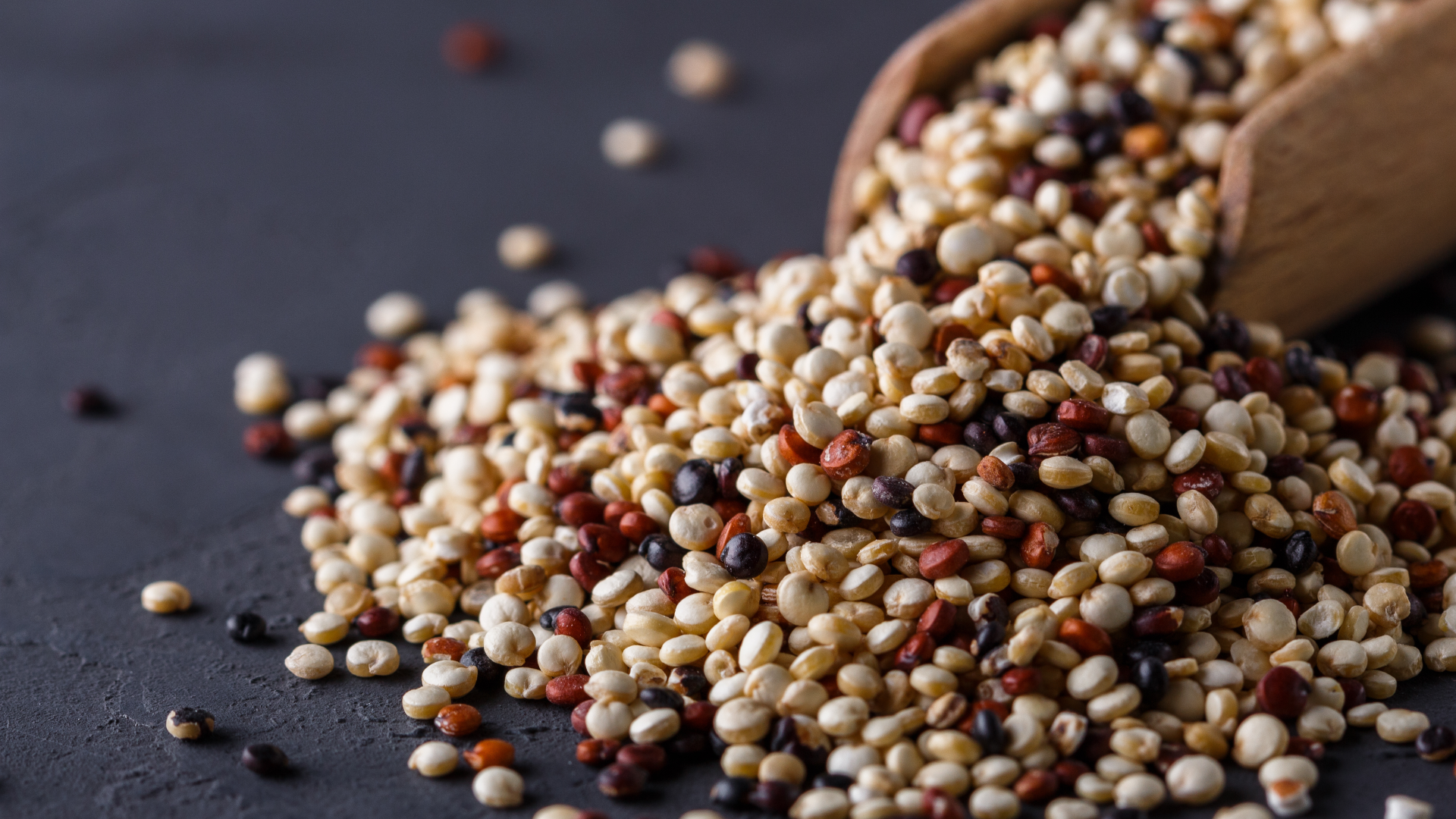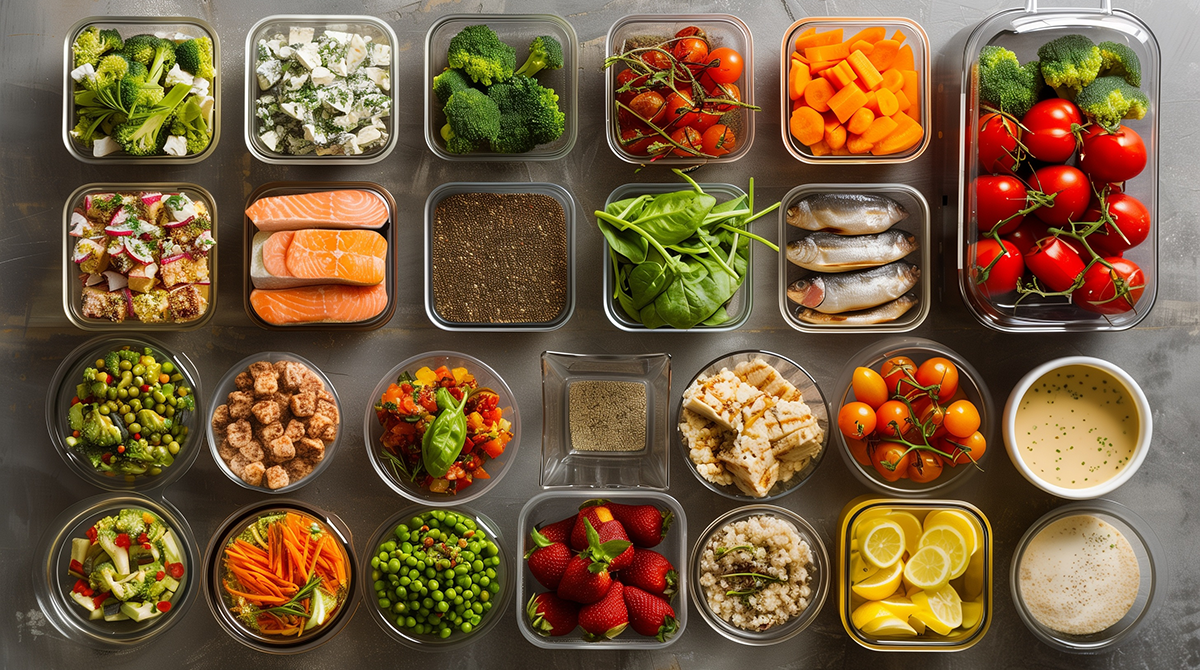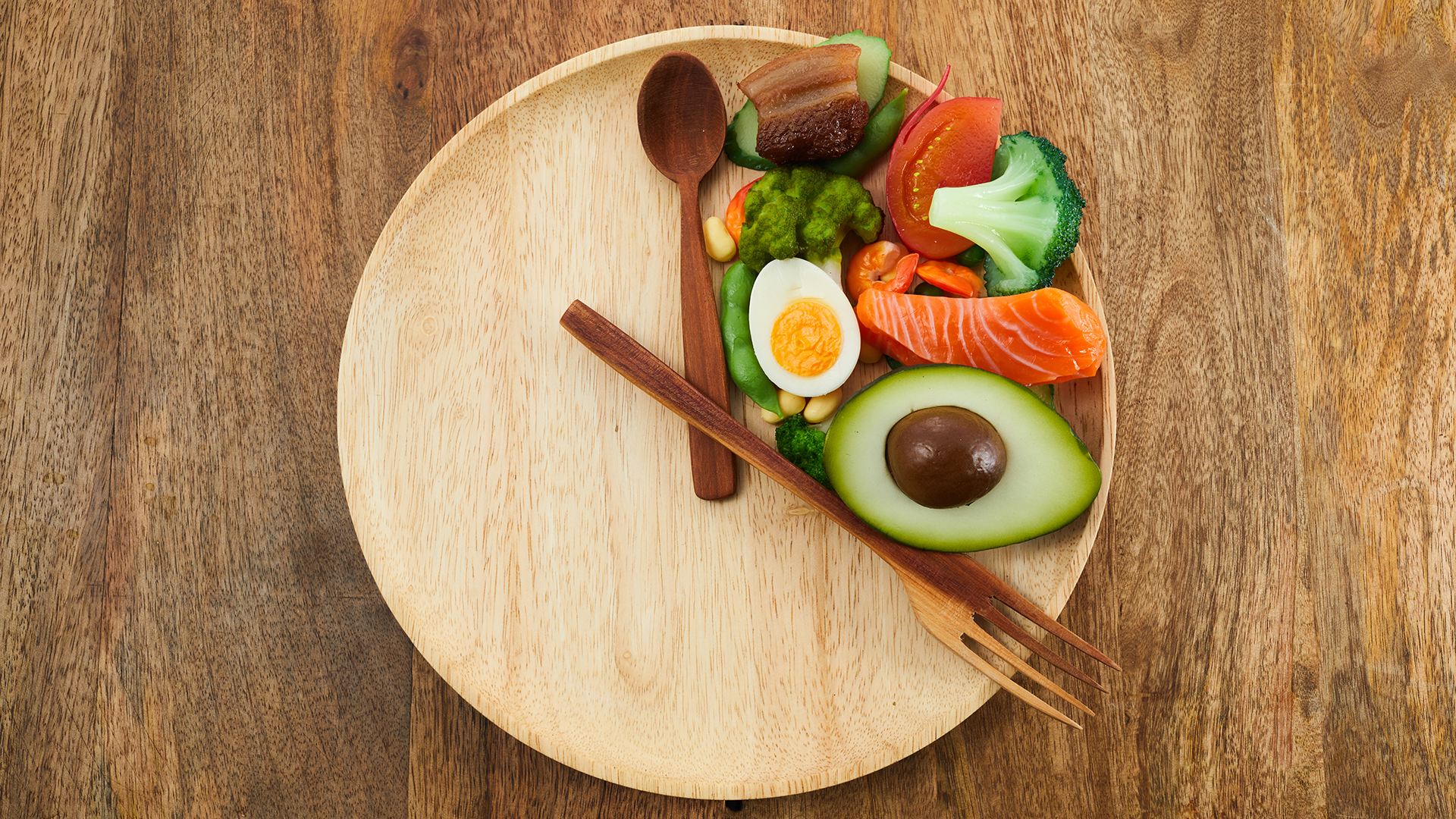Things you'll learn here |
Quinoa, (pronounced “keen-wah”) has soared in popularity with foodies over the last few years.
A wheat-free alternative to more commonly used starchy grains, it’s a superfood in all senses of the word, much like quinoa. It’s now making regular appearances on supermarket shelves, as more people are reading about its health benefits—and the demand is getting greater.
What is quinoa?
Quinoa is an edible seed with a fluffy texture that is often referred to as a whole grain and comes in various colors, and is indigenous to the Andean region of South America.
It's becoming increasingly popular due to the high quality of nutrients it contains, like proteins (all nine essential amino acids), vitamins, and tip-top dietary minerals. Quinoa is also naturally gluten-free—great news for anyone with an intolerance.
Quinoa has a nutty flavor and a chewy texture. It’s a highly versatile, and nutritious addition to your daily diet, ideal for managing cholesterol levels.
There’s no denying that superfoods are here to stay, but is it safe to eat quinoa?
Let’s take a look at the pros and cons.
What are the health benefits of quinoa?
Quinoa is a highly nutritious seed that offers a range of health benefits that can make it a valuable addition to your diet.
When taking on a weight loss journey, it’s essential to concentrate on food which is nutrient-rich, as it will make you feel less hungry while giving you your daily fill of essential vitamins and minerals. Quinoa is one of those foods.
So what exactly can this superfood do for you?
It’s a Complete Protein Source
This is great news for those of us counting the calories. Calorie-controlled diets can make you feel tired, and hungry. So grabbing superfood that makes you feel fuller gives you an energy boost, and does so without packing on the pounds is the way to go.
Quinoa is a great choice as it contains all nine essential amino acids, which are important for bone and blood health, and nutrient absorption. And it’s the perfect find for vegans and vegetarians. Bonus.
Packed with Protein and Fiber
Quinoa isn't just about protein; it's also loaded with fiber. Foods high in fiber and protein take longer to digest, which means they help keep hunger at bay by making you feel fuller for extended periods. This is particularly beneficial when you're trying to lose weight, as it reduces the temptation to snack frequently.
A Plant-Based Powerhouse
Most complete proteins come from meat, but quinoa stands out as one of the few plant-based foods that offer all nine essential amino acids. This makes it an excellent protein option for those looking to reduce meat intake without compromising on nutritional needs. It’s a win-win for vegans, vegetarians, and even those who eat meat but want a healthier balance.
Including quinoa in your diet not only aids in weight loss but also supports overall health by providing essential nutrients that are often lacking in calorie-restricted diets.
How Quinoa Helps Reduce the Risk of Colon Cancer
Quinoa, a nutrient-packed superfood, plays a crucial role in promoting colon health and reducing cancer risk. Here’s how:
Rich in Fiber
Quinoa is an excellent source of dietary fiber, which is vital for maintaining a healthy digestive system. This fiber helps speed up the transit of food waste through the colon, minimizing the exposure of harmful substances to the colon lining, which can lower the risk of cancer.
Promotes Healthy Gut Bacteria
In addition to being high in fiber, quinoa is also packed with vitamins and minerals. These nutrients help nurture beneficial gut bacteria, which are key in protecting colon cells and maintaining a balanced gut microbiome.
Antioxidant Properties
Lastly, quinoa is rich in antioxidants that combat free radicals. Free radicals can cause cellular damage, which contributes to cancer development. By neutralizing these harmful compounds, quinoa offers a protective shield for your colon health.
Incorporating quinoa into your diet can therefore be a delicious and strategic choice for reducing the risk of colon cancer.
It’s a complete protein Source
This is great news for those of us counting the calories. Calorie-controlled diets can make you feel tired, and hungry. So grabbing superfood that makes you feel fuller gives you an energy boost, and does so without packing on the pounds is the way to go.
Quinoa is a great choice as it contains all nine essential amino acids, which are important for bone and blood health, and nutrient absorption. And it’s the perfect find for vegans and vegetarians. Bonus.
It’s packed full of dietary fiber
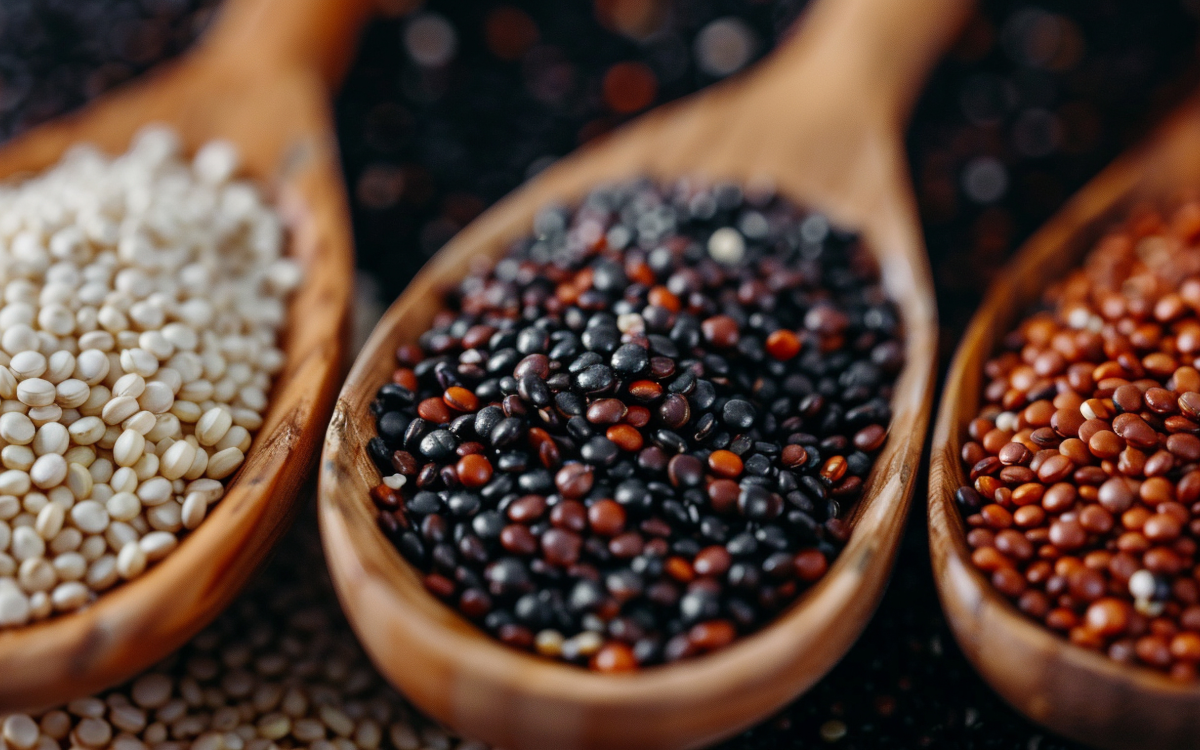
You want results? You’ll need to look after your digestive system and quinoa can help with that as it’s packed full of high-quality fiber and nutrition facts show its benefits.
Why? Well, because this will aid digestion, prevent constipation and lower the risk of intestinal diseases. A decent dose of quinoa will also help your stomach to feel fuller for longer, which will reduce your snacking urge.
It’s full of antioxidants
Quinoa is a good source of antioxidants, which can help protect the heart and other organs from damage. Antioxidants help to combat free radicals in the body which can be harmful to your health.
It’s absolutely packed full of essential nutrients
Quinoa, being gluten-free, is packed with essential nutrients which will support your health and wellbeing, including helping to manage your blood sugar levels…
- Magnesium: Great for regulating sugar levels, and improving exercise performance
- Iron: Crucial for oxygen transport in the body
- Folate: Essential for heart health and brain function
- Zinc: Necessary for immune function, digestive health and wound healing.
- Potassium: Vital for heart health and muscle function.
It contains plenty of important vitamins
Getting a pure vitamin source is essential for your health and quinoa certainly packs a punch. Here are just some of the essential vitamins this superfood contains…
- Vitamin E: An antioxidant which helps with immunity, cardio and skin health
- Vitamin B3 (Niacin): Important for overall health and energy production
- Vitamin B6: Great for cognitive function, and the formation of red blood cells
- Vitamin B1 (Thiamine): Important for energy metabolism and nerve function
It’s great for gut health
Quinoa promotes gut health by acting as a prebiotic to support their growth of “friendly” bacteria. It’s also a great source of fiber, essential for maintaining a healthy digestive system. Including gluten-free quinoa in your diet can help promote regular bowel movements and reduce constipation.
Quinoa can be beneficial for managing and potentially healing a leaky gut due to several of its nutritional properties:
-
Rich in Fiber: Quinoa is a good source of dietary fiber, which aids in digestion and helps maintain a healthy gut lining. Fiber can promote the growth of beneficial gut bacteria, which are crucial for gut health and integrity.
-
High in Protein: Quinoa contains all nine essential amino acids, making it a complete protein. Proteins are necessary for repairing and rebuilding the gut lining, which can be compromised in leaky gut syndrome.
-
Anti-Inflammatory Properties: Quinoa has anti-inflammatory compounds such as quercetin and kaempferol. Inflammation is a significant factor in leaky gut, and reducing inflammation can help improve gut barrier function.
-
Gluten-Free: Quinoa is naturally gluten-free, making it a safe alternative for those with gluten sensitivity or celiac disease. Gluten can exacerbate symptoms of leaky gut, so avoiding it can be beneficial.
-
Rich in Nutrients: Quinoa is packed with vitamins and minerals like magnesium, zinc, and iron, which are important for overall health, including gut health. Zinc, in particular, is essential for maintaining the structure and function of the gut lining.
-
Prebiotic Potential: Some studies suggest that quinoa may have prebiotic effects, meaning it can feed the beneficial bacteria in the gut. This can help restore a healthy balance of gut microbiota, which is crucial for repairing and maintaining the gut lining.
Incorporating quinoa into a balanced diet, along with other gut-friendly foods, can help support the healing process of a leaky gut. However, it’s also important to address other lifestyle factors and potential underlying causes of leaky gut, such as chronic stress, poor diet, and certain medications, under the guidance of a healthcare professional.
It can help with diabetes
Quinoa can help those with diabetes due to its low glycemic index, which means it doesn’t cause a spike in sugar levels. It’s also high in fiber and magnesium, which can help sugar management.
Incorporating quinoa into your diet might do more than just manage sugar spikes. Studies suggest that a higher intake of magnesium, a mineral abundant in quinoa, is associated with a reduced risk of developing Type 2 diabetes.
Moreover, a particular study highlighted that consuming quinoa regularly lowered the risk of diabetes in older adults with prediabetes. This effect may be amplified when quinoa is part of a balanced diet that includes fruits, vegetables, and other whole grains.
By integrating quinoa into your meals, you could potentially enjoy not only improved blood sugar management but also a lower risk of developing diabetes and other related metabolic conditions.
Of course, there are many more benefits to quinoa than the ones we’ve named above. With this in mind, it’s no surprise that so many smart dieters incorporate quinoa into their meal plan.
But is quinoa really as safe and beneficial as it seems?
Is quinoa safe to eat?
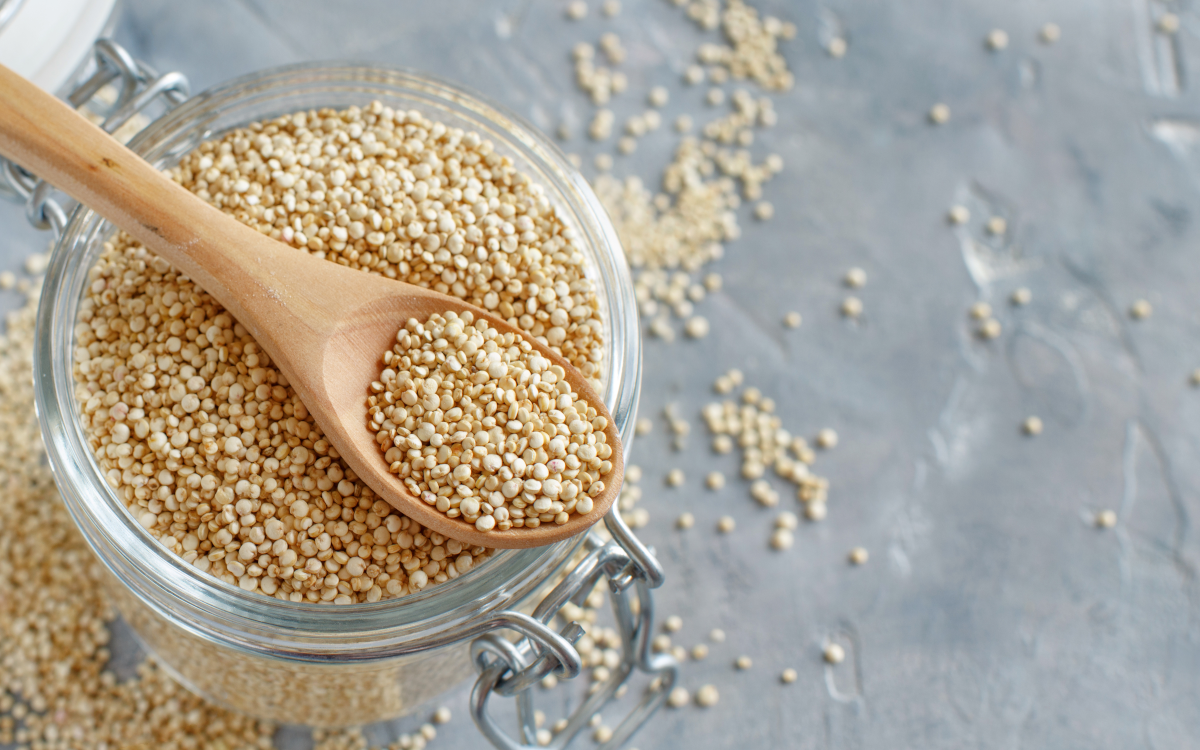
Is quinoa bad for you? Why do some believe it’s not safe to eat?
This rumor originates from the fact that quinoa contains chemicals called saponins. Saponins are naturally occurring phytochemicals that coat the outside of unwashed quinoa, giving it a bitter taste.
Saponins serve an important purpose when quinoa is still growing: They deter pests from eating it. But, when consumed by humans, they can cause digestive issues, such as mild bloating, or even diarrhea
If you suspect that you might have an allergy or intolerance to quinoa, it's crucial to pay attention to your body's reactions after consuming it. Healthy foods should enhance your well-being, so if you experience discomfort or adverse effects, take it seriously.
Steps to Take:
-
Monitor Symptoms: Keep track of any unusual symptoms that occur after eating quinoa. These might include digestive issues, skin reactions, or respiratory problems.
-
Consult a Healthcare Professional: Reach out to your doctor or a registered dietitian for advice. They can guide you through the process of determining whether quinoa is the culprit.
-
Consider an Allergy Test: Your healthcare provider might recommend allergy testing to confirm any suspicions. This can help identify specific triggers and guide dietary adjustments.
-
Keep a Food Diary: Document your meals, ingredient lists, and any symptoms. This can provide valuable insights and assist your healthcare provider in diagnosing the issue.
Allergic Reactions and Symptoms
In rare cases, people can be allergic to saponin, leading to symptoms such as:
- Hives or rash
- Vomiting or diarrhea
- Wheezing or trouble breathing
If you experience any of these symptoms after eating quinoa, it's crucial to seek immediate medical care.
Dealing with Digestive Discomfort
Not everyone is allergic to saponins, but some may have trouble digesting them, resulting in mild digestive upset. If you notice bloating or discomfort, try soaking quinoa for 30 minutes and rinsing it thoroughly before cooking. This process helps remove most of the saponin, potentially easing any digestive issues.
Listening to Your Body
Most people can safely enjoy quinoa as part of a balanced diet. However, always listen to your body. If you suspect a food allergy or intolerance, consult your healthcare provider. Healthy foods should enhance your well-being, not detract from it.
Ultimately, seeking professional guidance is the best approach to ensure your dietary choices support your health goals.
Nutritional tips for eating quinoa safely
If you’re a quinoa addict, don’t panic, all is not lost! You don’t have to eliminate quinoa from your diet because of saponins; it's packed with health benefits like managing blood sugar. You just need to make sure you remove them during the cooking process.
Give it a rinse
To remove saponins safely and effectively, simply give your quinoa a good rinse prior to cooking. While cooking, it’s easy to tell whether you’ve removed all the saponins, as any frothy water when you cook quinoa is an indication that some still remain.
If this happens, simply use clean boiling water to rinse through the quinoa once again, much like you would with white rice or barley.
As smart dieters, we’re used to washing salad, rice, fruit, and vegetables to prevent health issues, so it’s no biggie that quinoa needs a good rinse before use, too. Besides, the health benefits vastly outweigh the mild inconvenience.
Maintain a healthy lifestyle
If you’re going to add the nutrient superfood as a regular part of your diet, make sure you back it up by leading a healthy lifestyle to get the maximum body-boosting benefits.
For example, you won’t feel the benefit of quinoa if you’re waking up hungover after just a few hours of sleep.
Get plenty of sleep, limit alcohol consumption, reduce your stress levels, and be body positive. You’ll be surprised at how good you feel when combining all of these factors.
Get plenty of exercise

Physical activity is essential if you want a healthy lifestyle, and is a must for weight management. Try to get on your feet as much as possible during the day.
Even standing still burns calories. Even with a busy lifestyle, you’ll be able to get active if you’re creative enough. Getting your heart rate up is essential for burning those calories so get moving in a way that makes you happy.
Read: 4 Ways To Fall Back in Love With Exercise
Eat a healthy, balanced diet
A healthy diet is essential to your health and eating a variety of foods containing essential nutrients will ensure you’ll reap the benefits of all quinoa has to offer.
Concentrating on nutrient-rich foods such as fruits, vegetables, whole grains, lean proteins, and healthy fats will help to keep you healthy, and draw out the best properties of quinoa.
Read: 10 Tips For Eating Out And Staying Healthy
Keep hydrated
Hydration, important for digestion, complements a diet rich in gluten-free quinoa, ensuring you keep your body hydrated. Try to steer clear of sugary, carbonated drinks, as they’ll simply add empty calories.
Quinoa can be used in so many ways to add a nutritional boost to your meals. If you don’t have some in your cupboard right now, you’re seriously missing out.
Not only is quinoa packed with good-for-you nutrients, but it also serves as a fantastic alternative to white rice and pasta. By swapping out low-fiber, processed carbs for quinoa, you get more nutritional bang for your buck.
Worried about the taste?
Quinoa is incredibly versatile and can easily replace grains in most recipes. Try incorporating it into your favorite dishes or salads. When sprinkled into meals you already love, you likely won’t notice a big difference in flavor, but you'll certainly notice the health benefits!
So next time you're planning a meal, consider reaching for quinoa. It’s a simple change that can make a significant impact on your diet.
Some quick and easy quinoa recipes
Weaving quinoa into your diet will provide a versatile and nutritious ingredient that you can use in various dishes, from salads to breakfast options.
By including quinoa in your meals, you can enjoy its nutritional value and contribute to your overall wellbeing.
Still not sure? Check out these ideas.
Chicken and quinoa salad
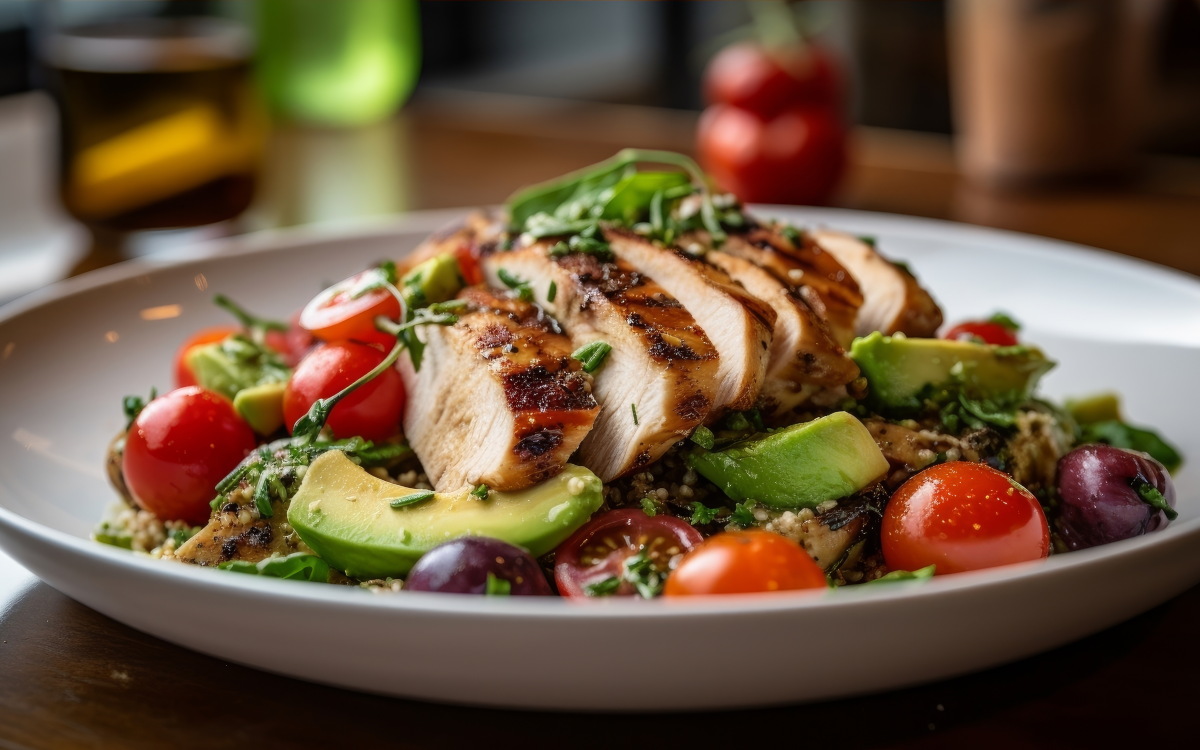
Making a salad with quinoa is a great idea, not just because it’s incredibly healthy, but also because you can make a bulk load and store it in the fridge for use as a side dish whenever you need one. It’s a quick and easy recipe that will have you coming back for more. For a vegetarian and vegan option, you can ditch the chicken.
Ingredients
- 100g cooked chicken
- 80g quinoa
- 1 lemon
- 1 can of sweetcorn
- 150g cherry tomatoes
- 2 spring onions
- 1 cucumber
- 1 tbsp mint
Method
- Remove the sapions by simmering the quinoa in boiling water for 20 minutes. Once the grains have burst, rinse under cold water to clean it.
- Mix the quinoa, the tomatoes, and onion. Add the sweetcorn and spring onions and mix together.
- Chop up the cucumber and add to the mix, along with the chicken, sweetcorn and mint.
- Squeeze the lemon juice over the top of the salad and mix thoroughly.
Quinoa porridge with strawberry
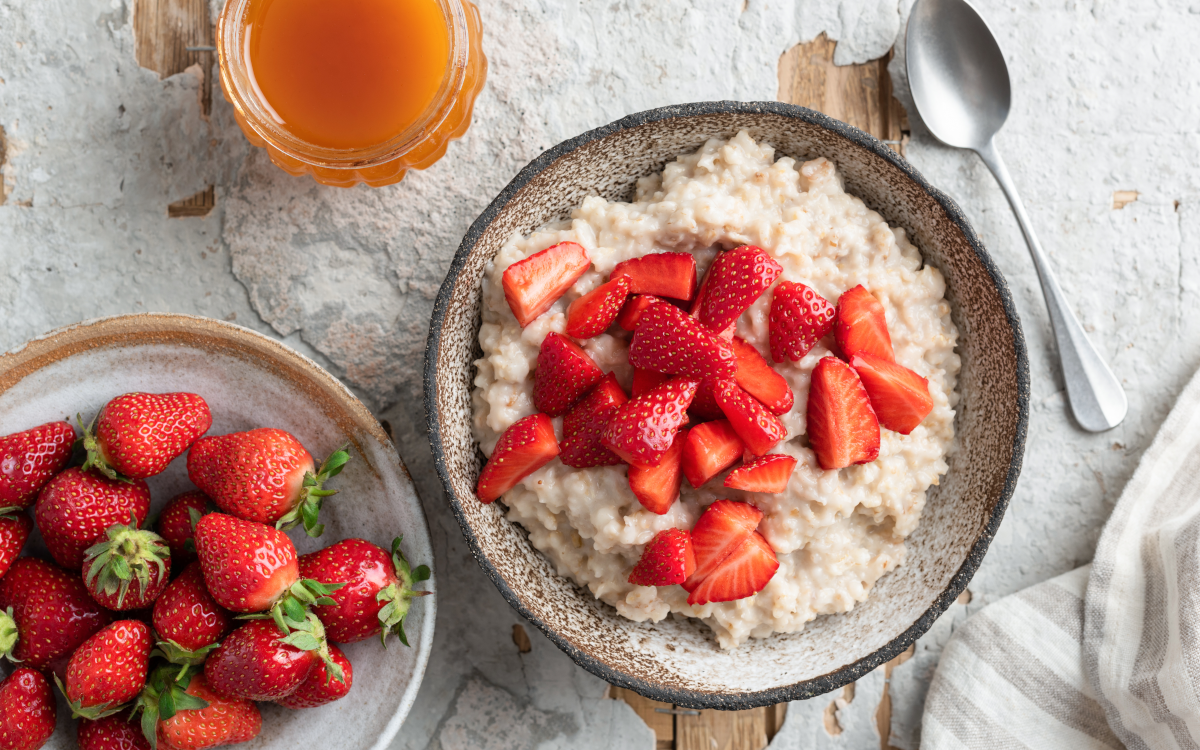
Start the day with a bang by getting a healthy dose of protein, and essential vitamins and minerals.
Ingredients
- 250g strawberries or raspberries
- 1 cup Quinoa
- 1 cup porridge oats
- ½ cup Skimmed or almond milk
- Honey
Method
- Chop the strawberries into halves.
- Mix the porridge oats and skimmed milk together, and add the quinoa, and strawberries.
- Heat in the microwave for added warmth.
- Top with honey.
Quinoa: Final thoughts…
There’s no denying the health benefits of quinoa are plentiful—and it will make a tip-top addition to a healthy diet.
But, to reap its body-boosting rewards, you must prepare it properly before cooking by washing it thoroughly to remove the saponins—then you’re good to go.
Be creative and weave quinoa into your diet regularly to get a power-packed boost of essential nutrients. Enjoy.
For more insider advice on nutrition, check out our guide on how to eat healthily on a budget
FAQs
What are the health benefits of quinoa?
Quinoa is a highly nutritious grain that is packed with essential nutrients such as fiber, antioxidants, magnesium, and plant-based protein. It is also gluten-free and contains all nine essential amino acids, making it a complete protein source. Incorporating quinoa into your diet can help improve gut health, regulate blood sugar levels, and reduce the risk of diabetes.
Is quinoa bad for leaky gut?
Contrary to popular belief, quinoa is not bad for leaky gut. In fact, it can be beneficial for gut health due to its fiber content and nutrient density. The nutrients in quinoa support digestive health and can help improve overall gut function.
Why is quinoa considered a good source of nutrition?
Quinoa is considered a good source of nutrition because it is a whole grain that is rich in vitamins, minerals, and antioxidants. Additionally, it provides complete protein, containing all nine essential amino acids. Including quinoa in your diet can help support overall human health and provide a wide range of essential nutrients.
Does quinoa cause constipation?
Quinoa is actually a good source of fiber, which can help promote regular bowel movements and prevent constipation. The fiber content in quinoa supports digestive health and can alleviate digestive issues like constipation.
How does quinoa impact blood sugar levels?
Quinoa is a low glycemic index food, meaning it has a minimal impact on blood sugar levels. This makes it a suitable option for individuals looking to manage their blood sugar, including those with type 2 diabetes. The nutrient profile of quinoa can help stabilize blood sugar levels and support overall metabolic health.
Is quinoa gluten-free?
Yes, quinoa is naturally gluten-free
